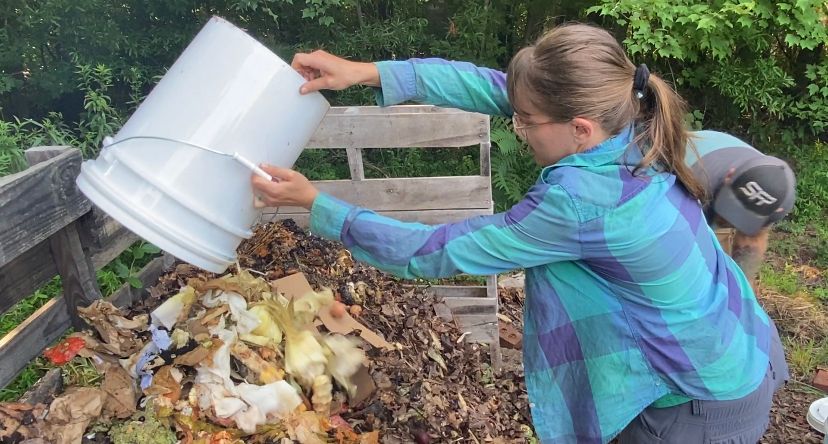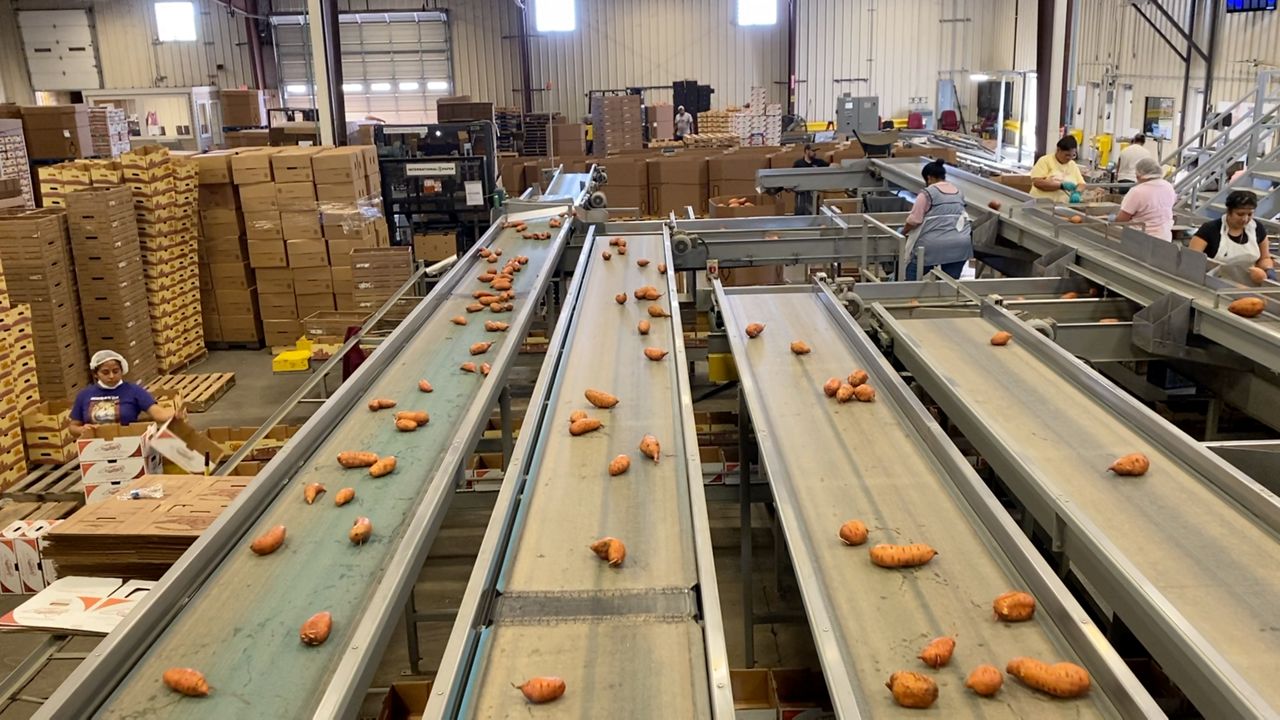WILSON COUNTY, N.C. — There is a long and storied history in North Carolina of tobacco reigning as the king of all crops.
Dating back to some of the earliest settlers in America, the tobacco leaf held a status as a major cash crop in the state.
Generations of families have enjoyed a livelihood selling the plant, pulled out of fields they own. Those days are gone, but you can still find a little bit of the past in Wilson County.
Thaddeus Pender Sharp III is a multi-generational tobacco farmer living near Sims. Six generations of Sharp's family have harvested the crop for well over 100 years.
Sharp says his great-grandfather, George Glover, bought land in the late 1800’s to help feed his family.
At the headquarters on his farm, Sharp points to an aerial photograph of all their lands.
“This shows our footprint in this particular part of eastern North Carolina,” Sharp said.
His family's farm is still profitable, despite the many who once owned crops and are not.
He has a colorful way of telling you he loves being a tobacco farmer.
“It's the most fun I ever had with my clothes on,” he said.
He calls his line of work a thrill that began early in life.
“When I was 5 years old, I started driving a tractor. By the time I was 7 or 8 years old, I was driving tractors on a regular basis and having a lot of fun doing it,” Sharp said.
The wily 70-year-old man doesn’t drive tractors any longer. His son, Thaddeus Pender Sharp IV, who goes by “Thad,” oversees the day-to-day operations.
This young-at-heart old-timer does less physical work now and more office management.
This spring, 4 million plants were put in the ground across 600 acres of their land.
“With tobacco, there is never a down time,” Thaddeus Sharp said. “It’s always focused on the current crop or the next crop.”
He remembers as a child watching his father plant crops by hand. He says in the 1950s and 1960s, it took 600 hours of manual labor to grow one acre of tobacco.
Now, tractors soak up part of that back-breaking labor. Technology and mechanization, which is the process of using large-powered machinery such as tractors, reduced that window of time to 100 hours or less.
The reason for the massive reduction in work time is primarily due to machines replacing mules and brute human force. By the 1970s, machines gave farmers a chance to grow larger volumes of good high quality tobacco.
“We have made great strides in this industry. Certainly there’s a lot of pride in being able to farm on land that my great-grandparents farmed. I wish so many times that my grandfather could see so many of the things that we are doing today,” Thaddeus Sharp said.
If they were alive, they would see a lot has changed. As farmers moved into the 21st century, the billion-dollar industry lost its title as the cash crop king. Hog farming is now the most profitable agricultural seller in the state.
“Our focus today is more on the world market than it is on the domestic market. The domestic market is certainly getting smaller every day, and that is to be expected,” Thaddeus Sharp said.
The competition is now a global game. He said buyers in China and other parts of Southeast Asia love the taste of American tobacco. Increased knowledge of smoking causing high rates of lung cancer also put a squeeze on the industry.
“We have had all these hurdles we have overcome, and it is still an adult product by choice, like so many other products that we have available,” Thaddeus Sharp said.
Production has gone down sharply across the Southeast over the last 30 years. Somehow, he has been able to stay afloat.
“This is my heritage. This is what I have done all my life. I can’t imagine doing anything else,” Thaddeus Sharp said.
He said they will begin to harvest the first leaves of tobacco in July. He said harvesting all of their tobacco crops will continue until September or October.
Editor’s Note: An earlier version of the story misidentified Thaddeus Sharp III. The story has been corrected.









